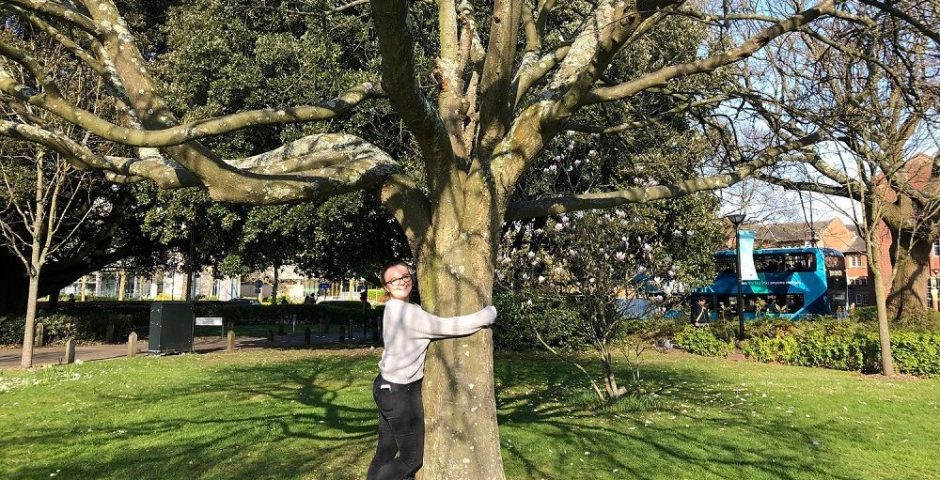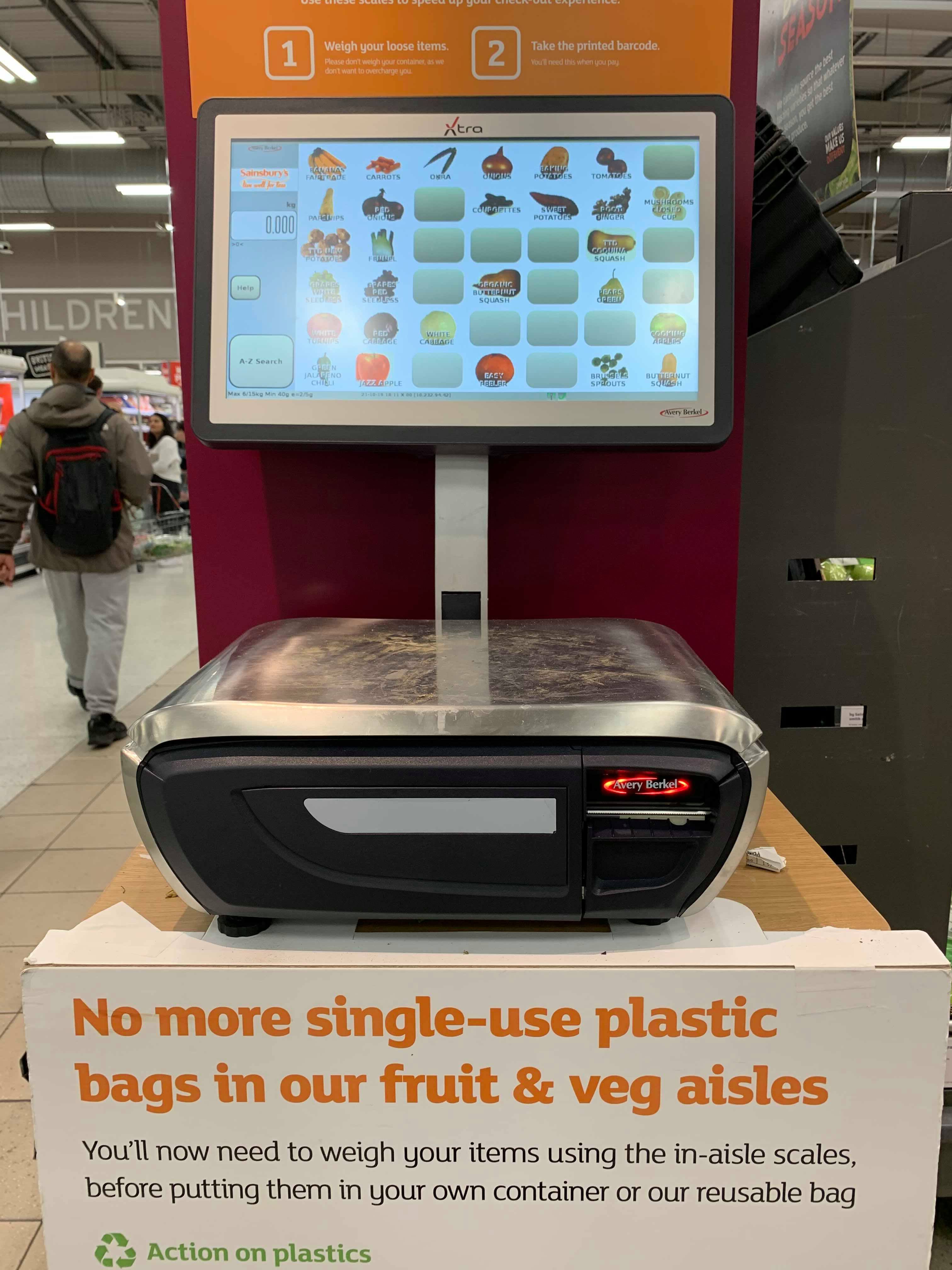
10 effortless ways Soton students can be eco-warriors
Let’s Greta this bread
It’s hard to believe that swapping out that post-Sobar Chic-O-Land for a measly bowl of veggies is going to make much of a difference against the larger corporations, which seem to be conspiring together to single handily ruin the planet.
But it’s time we ask ourselves, can we make a change even if it's from the comfort of our own uni homes?
The answer is yes.
Here are 10 simple and easy ways you, a Soton student, can make a difference to the climate movement, because let’s face it, something's got to be done!
1. Take notes electronically
It’s 2019, which means no more printing those lecture slides you’ll never look at again because it's damaging the environment. To reach the hungry demand for paper, an area of forest approximately the size of the Netherlands is cut down every 365 days. So why not try using PowerPoint, Pages or even Word *gasp* from now on?

2. Ditch single-use plastic, or re-use it
This one will not only help save the environment, but also a little extra of your student loan. The average UK adult buys more than three plastic water bottles every week (that's 175 bottles every year per person).
If you swap this out for that VSCO Hydro Flask you keep eyeing up in Hartley, you could save at least £150+.
Want proof? Well, if you buy 175 bottles a year at an average price of 90p then that’s £170 per year, while the pricier Hydro Flasks are usually £20-30! Quick maths.
Reuse your cup on a night out! We all love ourselves a £2 Quadvod, but in the process we forget the number of plastic cups that are thrown away. Re-using your cup can be a super easy way to cut down on your weekly plastic usage.
Also – try not to buy fruit and veg wrapped in single-use plastic. Sainsbury's have started providing reusable veg bags made from recycled materials for 30p.

3. Recycle
Take a moment to learn what can actually be recycled. Throwing non-recyclable items into your blue bin can result in most of your recyclable items being thrown away into landfills. Nobody wants their hard work being wasted, so here are some things that surprisingly cannot be recycled:
Your coffee cup – unless stated otherwise, your cup may look like it’s made out of paper, but inside is a thin layer of plastic. Since it’s made of two different materials, they cannot be recycled, so bring your reusable cup.
Greasy pizza boxes, tissue and kitchen roll – when recycling paper, the materials cannot have come in contact with food waste or bodily fluids, meaning they cannot be ‘cleaned’, and into the landfills they go.
DO NOT crush your cans – cans can be recycled an infinite amount of times so make use of that. When crushing your cans, you run the risk of them being miss-sorted and thrown into landfills, so don’t go that extra mile, just recycle them as they are.

4. Buy less or borrow
The fast fashion industry is the third largest user of water globally after oil and paper. Depop is a great way of overcoming this issue, a better way of selling pre-owned clothing that requires no water to be produced, compared to the 79 billion cubic meters of water per year used by the fashion industry to over-produce clothes. Or pop into one of the many charity shops in Portswood!
5. Walk or cycle around
Is that Uber really necessary for you, the environment or your bank account? Perhaps not.
Swap it out for other modes of transport. Walking/biking releases 0g of CO2 emissions per kilometre, whereas cars release around 140g. Or you could use the Unilink bus system if you really need to get somewhere far away.
6. Eat sustainable food
No one is asking you to go full vegan, just cut down on unnecessary products that could be swapped out for something similar and less damaging to the environment. Raising livestock produces large amounts of greenhouse gases into the environment. Eating less meat, even removing it from one meal a week, can positively influence change. The same goes for food containing palm oil, dairy products and products packaged in unnecessary amounts of plastic.
Meat free Mondays anyone?
7. Compost + food waste
Southampton offers a BioCycle programme which, for £10, means they will provide you with, collect and empty your compost bin weekly. If you choose to volunteer for them five times, they will refund you the £10 and continue collecting your compost.
Plan your weekly meals! Shop according to your meal plans and that way you won’t end up wasting as much food. Remember to eat what you have in your fridge before you buy more or eat out at restaurants. This way you’ll be helping the environment, and your wallet.
Try the OLIO app. It’s like a Depop for unwanted and uneaten food. You advertise the food that you no longer want, and people will come and pick up for free. No price, No waste.
8. Refuse, reduce and reuse plastic

When shopping, try using fabric carrier bags, or if you have plastic bags, re-use them.
Don’t buy unnecessarily plastic packaged fruit and veg, why not try ‘International Foods’ in Portswood – they have a huge range of plastic free items that the larger stores don’t have.
The university has recently opened a new cafe ‘The Plant Pot’ in the Students' Union, which is all about sustainable living. You can bulk buy dry goods such as beans and lentils if you bring your own container, as well as grab a bite to eat at the zero-waste vegan and veggie friendly café.

The 'Refill Not Landfill' station at SUSU's Plant Pot
9. Opt out of junk mail
Junk mail is a waste of paper, plastic, and frankly it’s just irritating. Opt out of paper billing from your banks and subscriptions to other junk mail.
10. Save water
Have a quick shower instead of a bath, check out that faulty tap that keeps dripping and turn off the tap when you brush your teeth. Using less water means more is reserved for our natural ecosystems and more energy is conserved in the process.
Being an eco-warrior at uni isn't as difficult as it sounds.







































